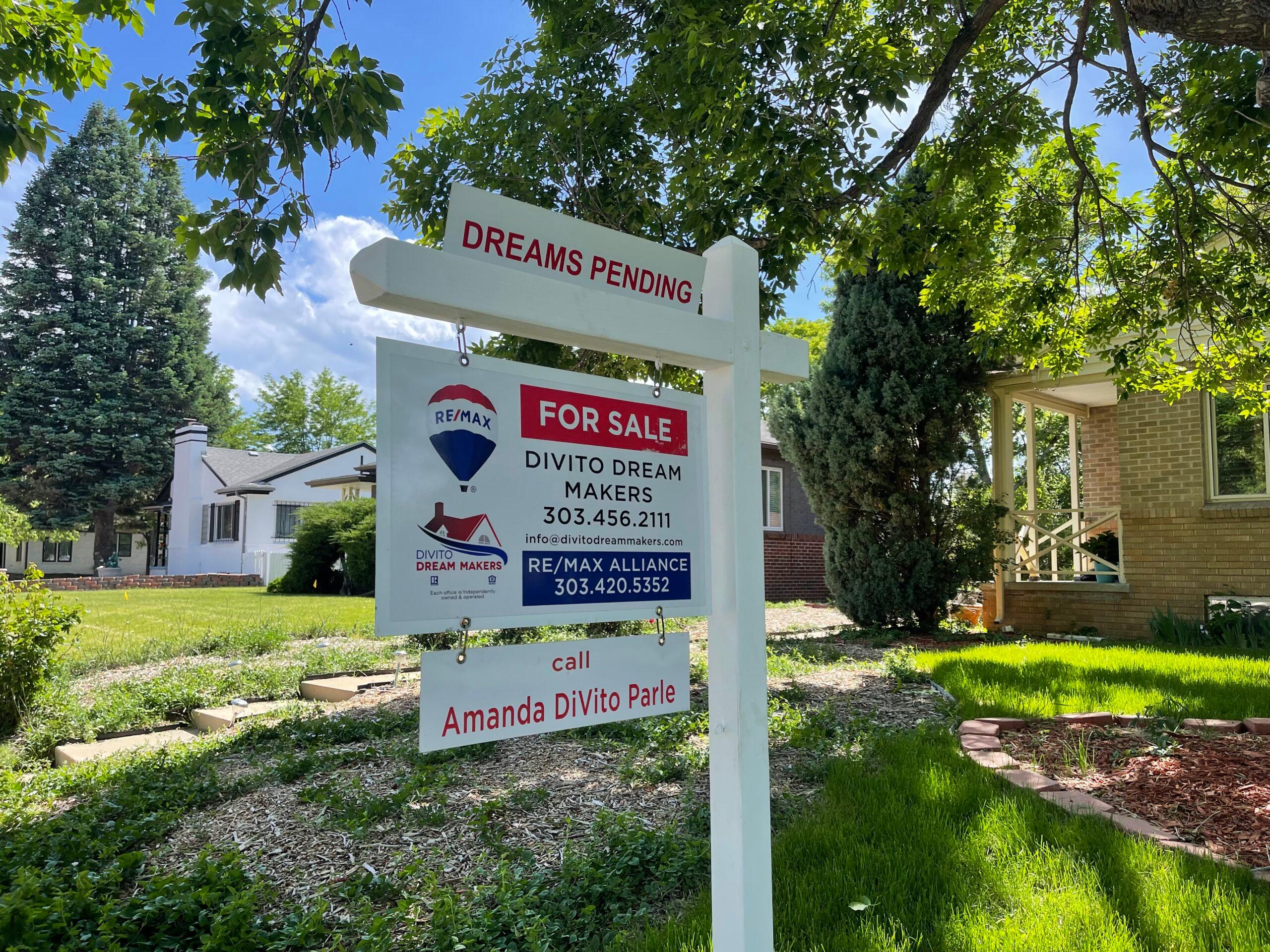You know the law of gravity: What goes up must come down. Over decades, that's not been the case with the housing market -- at least when you look at general trends. Denver, like nearly everywhere, has seen property values rise over the decades.
But that's not always the case month to month, as we saw in Denver from April to May.
In spring, the Colorado Association of Realtors prophesized that the average home price in Denver would hit $1 million by Memorial Day. Things were trending up. Of course they would...right?
Too bad, Nostradamus: That didn't happen on the predicted timeline. Rather, the average sales price dropped, from $947,195 to $872,792. It's still up over $100,000 from the end of April 2021, according to the group's latest market report.
The average, which gives a lot of weight to extremes and not the actual situation for most home buyers, isn't a great way to determine what people are actually spending on their houses. The better tool that reflects the market is the median home price. Just like the average, that also fell from April to May, from $750,000 to $692,000.
All of the above is about single-family homes, and buyers can always get a better bargain at a multi-family property, like a townhome, a duplex or a condo -- at least, depending on how high homeowner association fees are. The median sales price of those units dropped from $515,ooo to $458,750.
Here's another fun and telling number to look at to understand what's next for the real-estate market: How much housing is actually available?
In April, there were just 921 new single-family and 682 multi-family home listings on the market, and by May that was up to 2,819 single-family and 2,287 multi-family homes. That rise in inventory explains the drop in price.
For a big city like Denver, that still amounts to a shortage of available homes, even if the shortage isn't as extreme as it was.
In April, homes were sold on average in about 10 days. That number jumped to 18 in May.
More homes available is a good thing for buyers -- especially those hoping to be choosier. When sales prices were peaking, even the most wrecked home was a hot commodity.
Why are there more homes on the market?
The Federal Reserve has intervened, raising interest rates on mortgages to slow down buyers who were taking advantage of extremely low rates in recent years. As a result, fewer buyers mean more homes are available.
Buyers who bought at the peak might be wringing their hands, worried they wasted money. They should keep in mind that though housing prices are currently lower, mortgage rates are higher. Even with a lower sales price, a family could still be spending more now than last year, if they buy now, because of interest.












